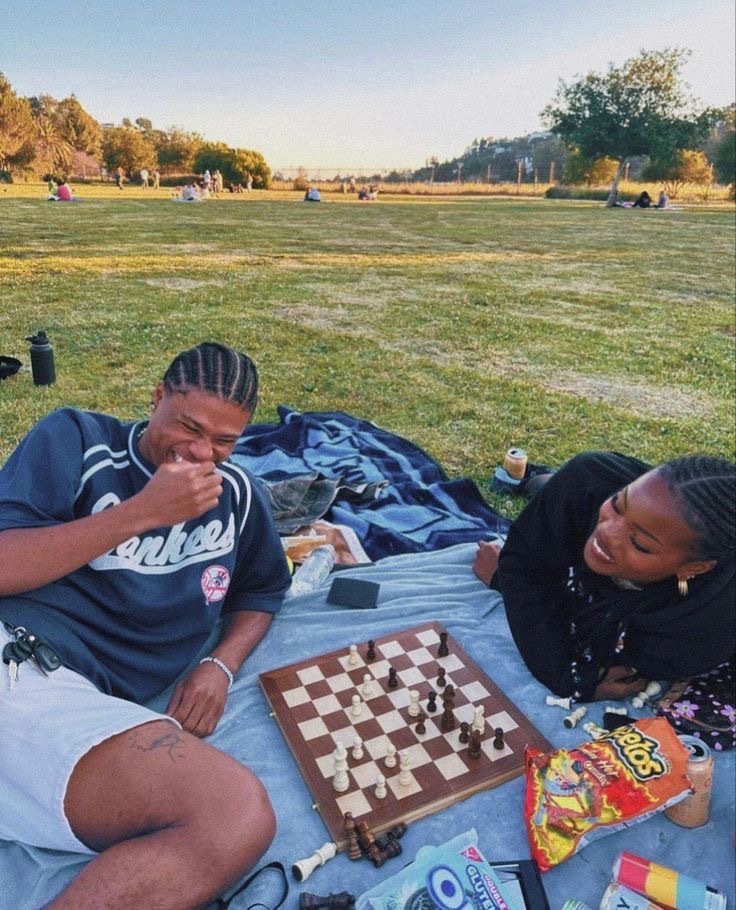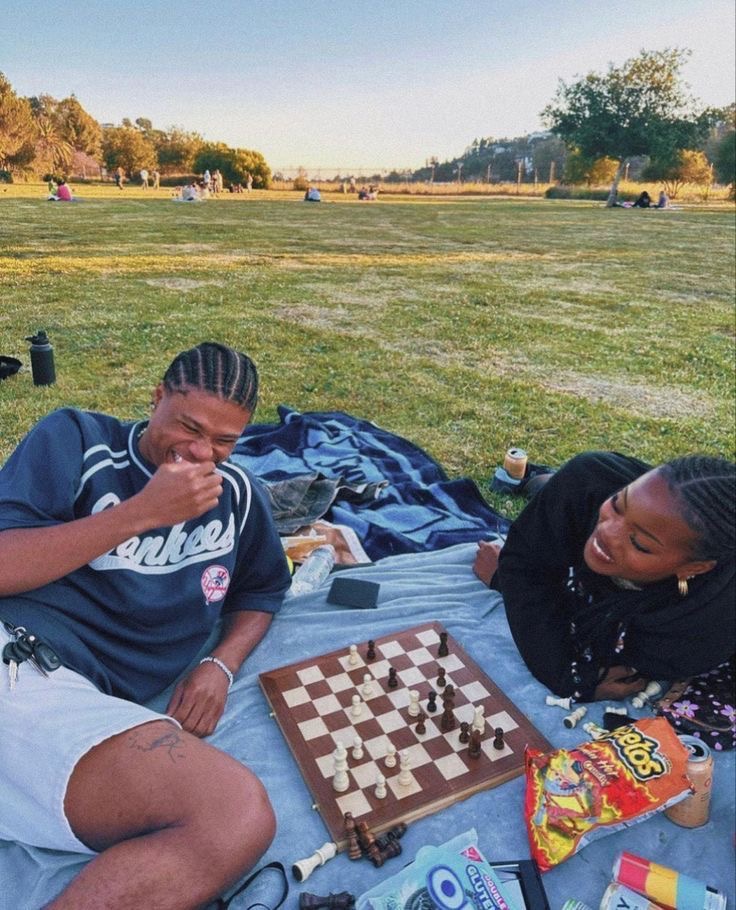Sex & Relashionships
Building Passion: Tips for Long-term Relationships

Have you ever looked at a couple who have lasted together for long and wondered, What their secret is? How do some relationships stay full of passion while others die off over time? The truth is, passion in a long-term relationship doesn’t just happen, it’s built, nurtured, and protected, it is the conscious effort both individuals put into the relationship to make it work.
Many people believe that love obviously loses its spark with time. While it’s true that the honeymoon phase doesn’t last forever, it doesn’t mean your relationship has to become boring or routine. Real passion isn’t just about butterflies in your stomach; it’s about connection, and the desire to keep rediscovering each other every day.
So, if you intend to keep your relationship exciting and deeply connected continually for years, here are some real, practical ways to build and maintain the passion in it.

Keep dating in your relationship
1. Keep Dating Each Other
Remember how excited you both were when you first started dating? The anticipation, the effort you put into making each moment special? That shouldn’t stop just because you’ve been together for years.
Long-term couples who keep dating each other remain attached to themselves because they continue to prioritize shared experiences. Plan date nights, surprise each other, and step out of your routine. It doesn’t have to be extravagant, a picnic, a long drive, or even a game night at home can reignite the spark. The key is intentionality.

Communication builds bonding
2. Communication: Say More Than Just the Basics
Falling into a pattern where conversations revolve around bills, chores, and responsibilities can be very easy. But deep, meaningful conversations are what keep passion alive.
Ask each other questions like:
- What is the new thing that you have been thinking about lately?
- What bothers you when I am not around?
- Is there something I’m doing that you are not comfortable with ?
- What other big dreams do you have that haven’t been shared with me yet?
- If we could do anything spontaneous this weekend, what would it be?
Be concerned about each other. Passion grows when there’s emotional intimacy, and that starts with real conversations, not just the “How was your day?” routine.

Physical touch
3. Keep Physical Intimacy a Priority
Passion is not always the emotional closeness, physical connection is key too. But let’s be real: life happens. Stress, work, kids, and exhaustion can make physical intimacy become difficult, when tiredness kicks in and rest is the only thing in your mind.
Being intentional about keeping the physical side of your relationship alive will help keep the passion burning. This doesn’t just mean sex, it means holding hands, hugging, random kisses, and simply touching more often. These small physical gestures can create a deep sense of connection and strengthen attraction.

Surprise each other
4. Surprise Each Other in Small Ways
You see, the little things we ignore in relationships is what matters most. Passion isn’t always about grand gestures. Surprise your partner with their favorite food, leave a note in their bag, or send a sweet text in the middle of a busy day.
These small acts show that you’re thinking about them, even when life is hectic. Consistency in small surprises creates lasting passion because it reminds your partner that they are seen, appreciated, and loved.

Grow together and individually
5. Don’t Stop Growing, Individually and Together
One of the biggest passion-killers is stagnation. If both partners stop growing, learning, and evolving, the relationship can feel stuck.
Keep discovering new things together and separately. Take up a hobby, travel somewhere new, read different books, learn something new, or challenge each other to try something outside your comfort zones. Develop yourself personally and then grow each other mentally, physically, spiritually and otherwise. A relationship stays exciting when both partners are constantly bringing something fresh into it.

Be a safe place for your partner to air their feelings
6. Fight the Right Way
It might sound strange, but passion isn’t just about the good moments, it’s also about how you handle difficult situations. Every couple fights, but how you fight determines how connected you remain.
Avoid name-calling, shutting down, or keeping score. Instead, fight with respect. Listen attentively, express your feelings honestly, and work towards resolution instead of just trying to be “right.” Couples who argue in a healthy way tend to have stronger emotional and physical intimacy because they feel safe expressing themselves.

Laughter heals
7. Keep Laughing Together
Laughter, they say, is the best medicine, and it is one of the most underrated yet powerful ways to maintain passion in your relationship. When couples laugh together, they create shared joy, which strengthens their emotional bond.
Find reasons to be playful. Watch funny movies, reminisce about hilarious memories, or even have silly inside jokes that only you both understand, trust me you will enjoy it. A relationship that has laughter is one that feels light, enjoyable, and full of life.

Don’t be a boring partner
8. Don’t Let Comfort Replace Effort
It’s easy to fall into the trap of thinking that once you’re in a secure relationship, you don’t need to try as hard anymore. But the truth is, effort is what keeps passion alive. The little extra time, sacrifices, finance, and everything you commit makes your relationship stronger.
Dress up for each other sometimes, make romantic gestures, and never stop putting in the energy you did at the beginning. Love doesn’t die because of time, it fades when effort stops.

Appreciate each other
9. Express Appreciation Regularly
Nothing kills passion faster than feeling unappreciated. Over time, it’s easy to take your partner for granted, assuming they already know how you feel. But everyone wants to feel valued.
Make it a habit to say “thank you” for even the smallest things. Compliment your partner, acknowledge their efforts, and remind them why you love them. Passion is fueled by feeling cherished, and appreciation is the foundation of that.

Create moments for fun
10. Create Moments of Excitement
Passion thrives on excitement, and excitement comes from doing things that break the routine. Take spontaneous road trips, try a new activity together, or do something unexpected, make sure you create time for this and don’t tell yourself you are too old for all these.
Couples who actively create moments of adventure keep their connection alive and burning. Even if you’ve been together for years, there’s always something new to try, if you make the effort.
Conclusion
Falling in love is not a choice but keeping the fire burning is a choice. Many people believe that passion just naturally fades in long-term relationships, but the truth is, it doesn’t have to. Passion is built through effort, curiosity, and a willingness to keep showing up for each other.
If you want a relationship that stays exciting, don’t wait for passion to find you. Create it. Prioritize your connection, nurture the intimacy, and never stop treating each other like you did when you first fell in love.
Because the most passionate relationships aren’t the ones that never change, they are the ones where both partners keep choosing each other, over and over again.
also read: 10 Love Languages Women Respond to
Sex & Relashionships
Love or Compatibility: What Really Makes a Relationship Last

When people talk about lasting love, they often mean the initial excitement or spark. It’s easy to assume that if two people love each other, nothing else matters. But experience and research show that what keeps relationships strong over time is rarely just passion. More often, it is compatibility, the practical alignment of values, lifestyle, and life goals.
Romantic chemistry is powerful. Studies show that attraction activates the brain’s reward centres, triggering strong positive feelings. But this excitement naturally fades as initial excitement diminishes. Relationships that rely mainly on this early spark often struggle when daily challenges and responsibilities arise. When couples say “we just fell out of love,” it is usually because the initial chemistry was not supported by deeper compatibility.

Photo Credit – Google
Compatibility is not about liking the same movies or hobbies. It is about aligning on core aspects of life: values, ambitions, communication styles, emotional rhythms, and expectations. Couples who share these foundations navigate conflicts with less friction, make decisions together on major matters like finances and family, enjoy day-to-day life, and support each other’s growth. Compatibility allows a relationship to function even during challenges. Without it, the relationship can still function, but it is vulnerable to stress and disagreement.

Photo Credit – Google
Research shows that love alone does not predict long-term satisfaction; compatibility does. Couples who share beliefs, communicate effectively, and pursue common life goals report more stable and satisfying relationships. Shared values help couples prioritise what matters most, aligned communication reduces misunderstandings, common goals create direction, and emotional attunement builds resilience when life gets tough. Compatibility also grows with effort. Couples who negotiate, adapt, and understand each other’s needs strengthen their bond over time.

Photo Credit – Credit
Love still plays a role. It motivates commitment and encourages couples to invest in the relationship. A relationship with love but no compatibility can feel exciting early on, but it is likely to struggle when reality tests expectations. Conversely, two compatible people who do not nurture emotional connection risk forming a partnership lacking emotional depth.

Photo Credit – Google
For relationships that last in the Nigerian context, where extended family, social expectations, and financial pressures often come into play, compatibility is critical. Couples should focus on honest communication, shared future goals, conflict resolution, trust, and supporting each other’s personal growth. When love and compatibility work together, the relationship is better able to handle daily challenges.
Lasting partnerships are not built solely on emotion. They are built intentionally. They require daily choices, mutual understanding, and the willingness to grow together. This sustains relationships.
Sex & Relashionships
‘Future Faking’ Is the Dating Red Flag You Can’t Ignore

In today’s dating culture, conversations about the future often start early. Someone talks about marriage within weeks, mentions introducing you to their family, or casually includes you in plans that stretch years ahead. On the surface, it can feel reassuring. In reality, this pattern has a name, and it rarely leads where it claims to be going.
Future faking describes a situation where one partner speaks confidently about long-term plans without taking any steps to make those plans real. The promises sound specific enough to feel sincere, yet nothing in the present changes. There is no progress, no clarity, and no movement beyond conversation. Over time, the future becomes a holding space rather than a destination.

Photo Credit – Google
What makes future faking difficult to identify is that it often looks like commitment. The language is intentional. The confidence is convincing. But commitment shows up in behaviour, not projections. Someone who genuinely plans a future begins to align their choices with it. They create timelines, address obstacles, and make decisions that affect both people, not just the person being reassured.
In many dating situations, especially where expectations around marriage and stability are culturally significant, future faking can subtly extend relationships that are no longer growing. One partner remains emotionally invested, waiting for clear next steps that are repeatedly postponed. The other maintains closeness without accountability, often shifting the goalposts when questions become more direct.

Photo Credit – Google
This behaviour does not always come from malice. Some people enjoy the comfort of emotional security without the responsibility that commitment requires. Others are unsure of what they want but use future plans to avoid difficult conversations in the present. Regardless of intent, the effect is the same. Time passes, expectations deepen, and clarity never arrives.
A consistent sign of future faking is vagueness. Plans are described without dates. Decisions are delayed indefinitely. Conversations about progress are met with reassurance instead of action. When pressed, the future remains flexible, conditional, or dependent on circumstances that never seem to resolve.

Photo Credit – Google
Recognising future faking is not about distrusting optimism or shutting down conversations about what lies ahead. It is about paying attention to alignment. When words repeatedly outpace actions, the imbalance becomes information. Dating is not sustained by promises alone. It is sustained by evidence of shared direction.
In the end, the most reliable indicator of intent is not how vividly someone describes the future, but how seriously they engage with the present. Where effort is consistent, plans tend to follow. Where effort stalls, promises often replace progress.
Sex & Relashionships
Dating App Worth Swiping Right on in 2026

Online dating looks different in 2026. Swiping is no longer a pastime. For many, it has become a deliberate way to meet people who fit into real life. Whether the goal is romance, companionship, or something in between, expectations are clearer than they used to be.
Here is a look at the dating apps proving useful this year, based on how people are engaging with them in real life.
Tinder: Where Everyone Seems to Be

Photo Credit – Google
Tinder continues to dominate because of its sheer user base. In major cities, it is almost impossible not to find someone nearby.
The challenge lies in filtering profiles. While some users are serious about dating, others are only interested in casual chats or brief connections. Making Tinder work depends on being honest in your profile and clear in your conversations from the start.
Bumble: Women Call the Shots

Photo Credit – Google
Bumble stands out because it puts women in control of conversations. After a match is made, only women can initiate contact, which helps reduce unwanted messages.
The app goes beyond dating. It also allows users to build friendships or make professional connections. This flexibility makes it appealing to people juggling busy work and social schedules.
Badoo: Casual or Serious? You Decide

Photo Credit – Google
Badoo offers flexibility. Features such as “people nearby” and video chats make it easy to meet new people without much pressure.
The user base is mixed. Some are looking for meaningful relationships, while others prefer light conversations. Being selective and engaging thoughtfully improves the experience.
Apps Built with Local Culture in Mind

Photo Credit – Google
Alongside global platforms, locally focused apps are gaining attention. These services are designed with cultural context and communication habits in mind, making them easier to navigate and more practical for everyday use.
Location-based matching, profile verification, and fewer paywalls increase the chances of real-life meetings rather than endless online chatting.
A Quick Reality Check

Photo Credit – Google
No dating app is perfect. Fake profiles, unclear intentions, and ghosting still happen. What makes the difference is how the platform is used:
Be honest in your profile
Decide early whether you want friendship, casual dating, or a long-term relationship
Communicate clearly and respectfully
People who follow these basics tend to have better experiences, regardless of the app they choose.
Which App Should You Try?

Photo Credit – Google
Tinder: Best for a large pool of potential matches
Bumble: Ideal if you prefer women to initiate conversations
Badoo: Works for those open to both casual chats and serious connections
Local apps: Useful for features shaped around cultural familiarity and practical use
In 2026, dating apps are tools, not solutions on their own. The right choice depends on your goals, lifestyle, and level of intention. With patience and clarity, these platforms can still lead to meaningful connections. In a year where time feels increasingly limited, the right dating app is the one that respects it.
-

 Celebrity Style4 months ago
Celebrity Style4 months agoMercy Aigbe Keeps it Sharp in Ivory Dress
-

 Celebrity Style4 months ago
Celebrity Style4 months agoBella Okagbue Puts a Spin on Feminine Suiting
-

 Fashion5 months ago
Fashion5 months agoTeminikan Experiments with Geometry in a Woven Mini
-

 Lagos Fashion Week4 months ago
Lagos Fashion Week4 months agoLagos Fashion Week’s Earthshot Prize Win Highlights a Changing Direction in African Fashion Production
-

 Celebrity Style4 months ago
Celebrity Style4 months agoDiadem Okojie Perfects Polka Dots
-

 Celebrity News4 months ago
Celebrity News4 months agoBurna Boy Commands the Spirit Tunnel on The Jennifer Hudson Show
-

 Celebrity Style3 months ago
Celebrity Style3 months agoChioma Ikokwu Wears Lanre DaSilva Ajayi’s SS26 Couture at the Designer’s 20-Year Celebration
-

 Movies4 months ago
Movies4 months agoTrailer Review for “Safari”
-

 Top Xclusiv4 months ago
Top Xclusiv4 months agoAnok Yai Named Model of the Year 2025 at the Fashion Awards
-

 Celebrity Style2 months ago
Celebrity Style2 months agoPantone’s 2026 Colour Cloud Trend Gets Uche Montana’s Seal of Approval
























